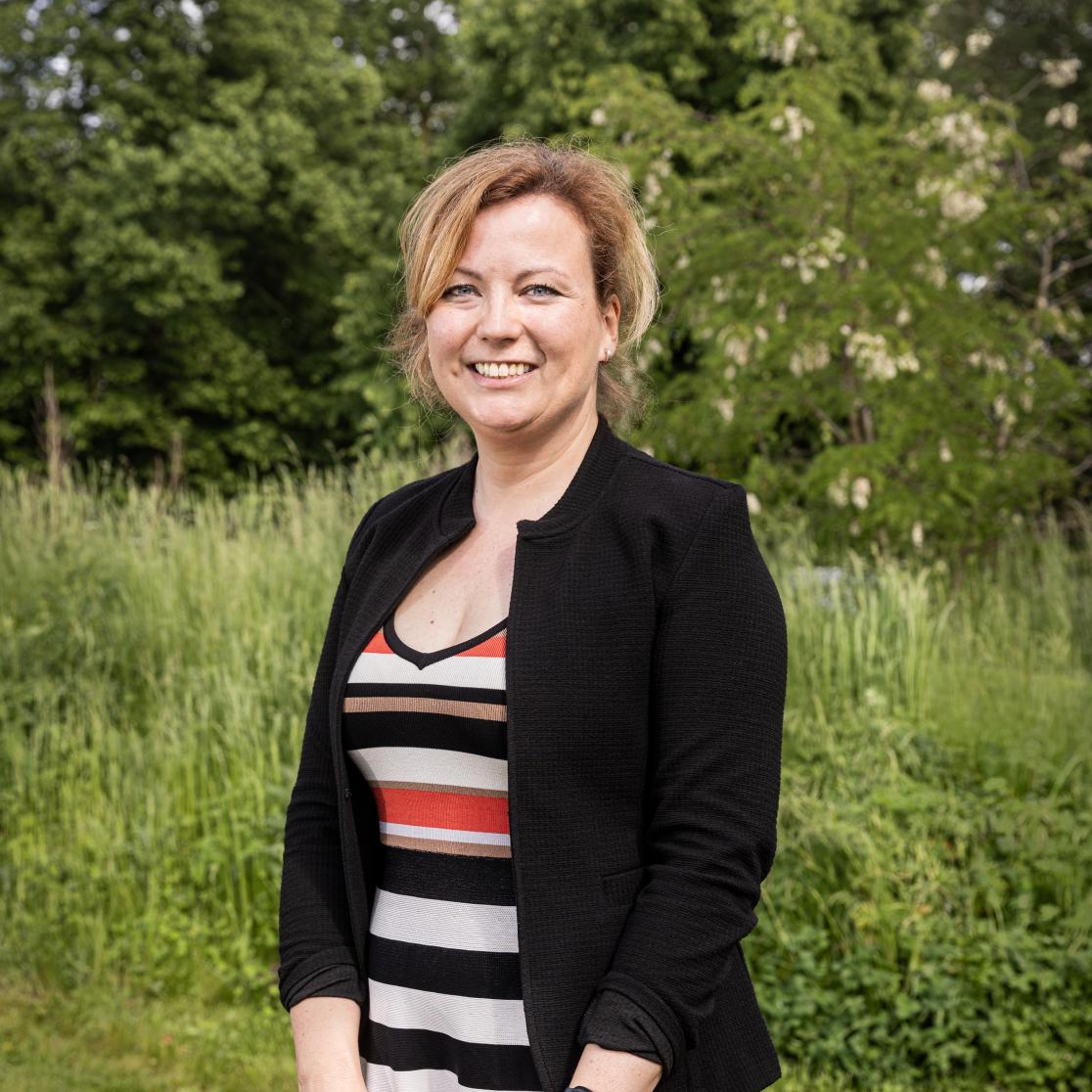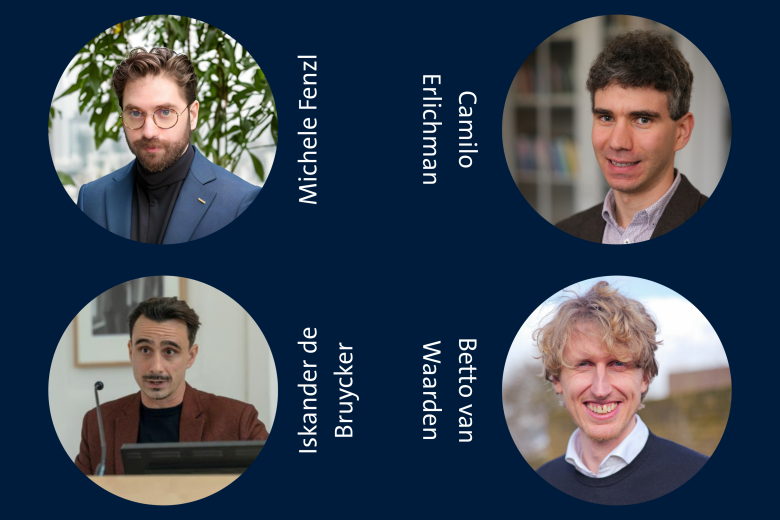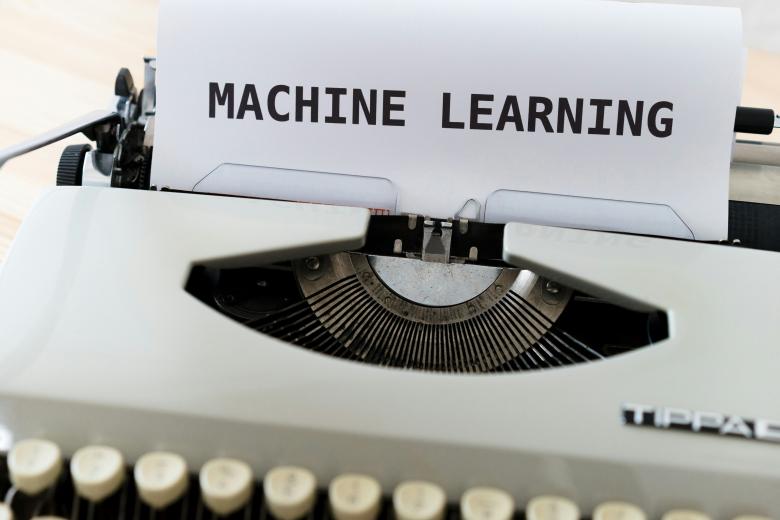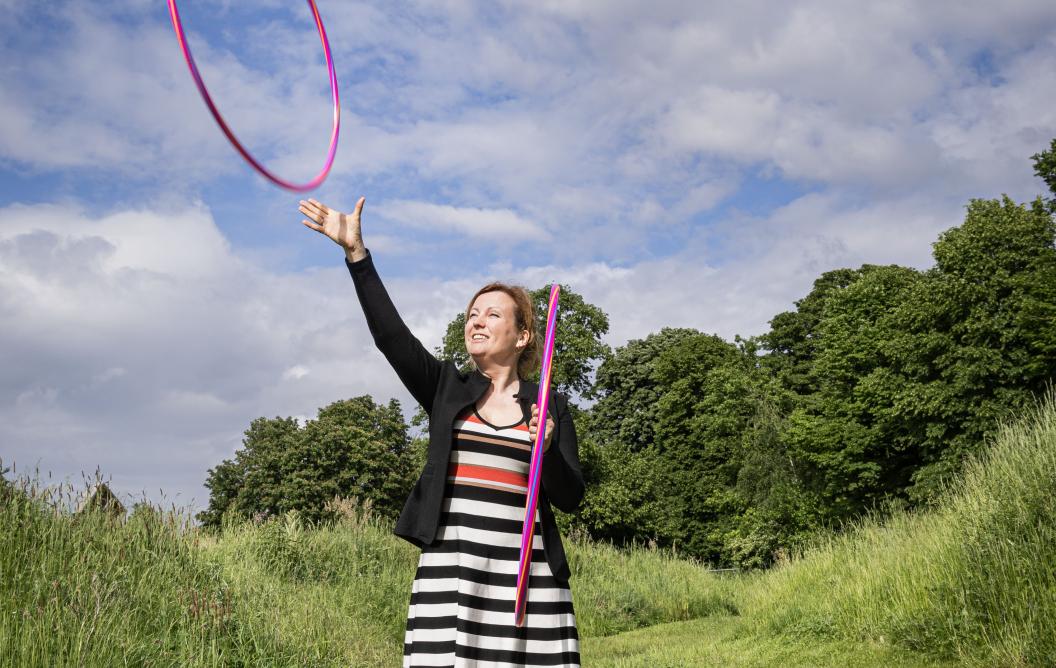Moving forward in circles
Society is stuck on a one-way superhighway of value destruction, if you ask Nancy Bocken. Here, the professor of Sustainable Business & Circular Economy proposes how we might exit the highway of linear consumption—and why what we do matters.
“We currently have a linear economic model,” Nancy Bocken explains. “We take resources, make something out of them, use it once or twice and throw it away.” In contrast, a circular economy has built-in value retention loops: products remain functional for as long as possible through remanufacturing, repairing, refurbishing and recycling.
“I studied International Business at Maastricht University, and once I started working, I discovered that it’s all ‘business as usual’. There was no concern about the climate, the environment or wellbeing. I found that scary and frustrating. It’s common sense that we have to address these issues.” This is what motivated Bocken to specialise in sustainable business.
Changing consumers
Some people will always insist on buying the latest iPhone, but Bocken’s research has shown that half of Dutch consumers could be convinced to buy a refurbished phone. “For some market segments, price might be decisive; for those seeking novelty, new features or upgrades might do the trick.” Solutions range from better communication strategies to service-model innovation, such as subscriptions for new features or refurbished phones every year.
Bocken suspects that the green consumer niche—currently estimated at around 10% to 25%, depending on the study—is growing. “I notice a clear shift. Even 10 years ago, I had to explain the threat of climate change to students. Now people are well-informed; they’re just not sure what to do about it.” A sense of agency is crucial when it comes to translating awareness and intentions into action.
Text continues below the photo.
Your actions matter
Bocken disagrees with the typical reasoning ‘what I do doesn’t matter because other people will do the wrong thing anyway’. “Food, mobility, energy and consumer goods, especially clothes—that’s where everyone can make a difference.” In terms of mobility, flying less and switching from cars to public transport or cycling move the dial. “Dutch cities are often cited as exemplary here, because we have a well-developed bicycle infrastructure.”
Insulating your home and optimising the use of electric appliances also helps. “I co-founded HOMIE, a business where people can rent appliances and pay per use. That raises awareness of resource usage.” In addition to buying seasonal, local produce, “eating less meat obviously makes the biggest difference, so becoming a flexitarian is a good start.”
A major issue in the retail sector is fashion, which exemplifies the problem of product longevity. While the idea of sewing on buttons might seem quaint and outdated, Bocken was involved in a project with a major UK retailer that offered surprisingly popular clothes-repair workshops. Of course, clothes can already be mended or made to last. There’s just no financial incentive to do so—quite the contrary.
Better business models, better laws
This is where innovative business models come in. “You could have a premium business model with higher profit margins, but products that last longer,” Bocken suggests. “There are already examples of this.” Everyone likes a bargain, though, so good branding is key. “We’re quite bad at product lifecycle costing. My dishwasher broke last week and it really is counterintuitive to factor how long you will use a product into its price.”
Well-intentioned individuals need to be protected, too. “We need better legislation. Ideas that go beyond the two-year-warranty currently required by EU regulations.” The circular economy package, part of the European Green Deal, emphasises producer responsibility. “It will lead to longer product lives. Companies have to provide spare parts to comply with the right to repair; they’ll also have to cut back on planned obsolescence.” France already has a law that restricts planned obsolescence, and successfully sued Apple for intentionally slowing down older phones with updates.
Circular X
Through Circular X, an ERC-funded research project, Bocken has created a circular economy network spanning academia, industry, policymaking and civic society. “There was a lack of circular business models in practice, and I wanted to change that by conducting research and gathering best practices.” Circular X has a well-visited website with open-access tools and case studies. “Universities use it for their sustainability courses; companies use it for inspiration and to book workshops with us.”
Bocken has created circular strategies for regenerating natural systems. She also advocates narrowing, closing and slowing loops, terms that refer, respectively, to eliminating waste from production systems and maximising resource efficiency, recycling, and increasing product lifecycles. “In our workshops, we create awareness, explain different strategies and make sure product designers can experiment with them in practice.”
Naturally, Bocken and her colleagues are also researching the efficacy of these strategies. “We see how policy in the EU is influencing the US and Asia. Europe is a big market and a major industrial player, so what we do at an EU level really matters.” Her research has made her more positive. “During covid, I did a lot of desk research and found that big companies were starting to experiment with ways of complying with the forthcoming EU regulations. Ikea is working on making spare parts available; H&M is partnering with a nonprofit clothing-repair company. And it’s not just about compliance. Many people actually want to do the right thing.”
Text: Florian Raith
Photography: Paul van der Veer

Also read
-
Four FASoS researchers awarded NWO XS grants
How do lobbyists use disinformation to sway policymakers? Who gets to shape the historical narrative of occupation and violence? Does growing inequality change the way citizens think about politics? And how have politicians defended “truth” across a century of media revolutions?
-
Reducing the Digital Divide: Empowering Students to Train, Evaluate, and Use AI Text Models
The Maastricht Law and Tech Lab, together with the Brightlands Institute for Smart Society (BISS), obtained a € 100.000 a Comenius Senior Teaching Fellow grant.
-
Green school playgrounds boost concentration and wellbeing
Children at schools with green playgrounds are better able to concentrate and display more social behaviour. This is the conclusion of a follow-up study within the long-running project The Healthy Primary School of the Future .
